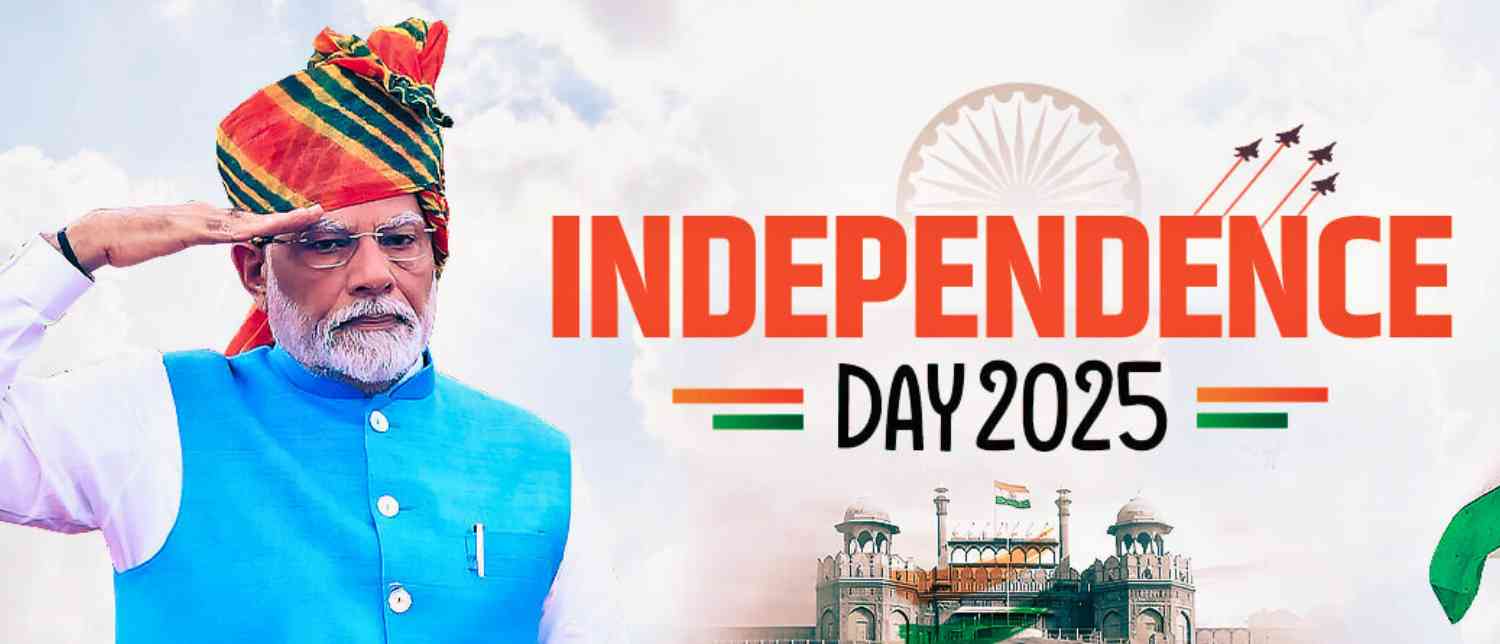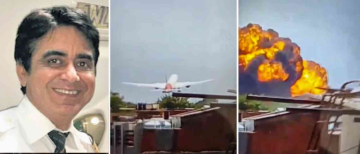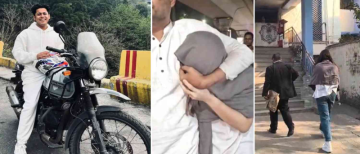On August 15, 2025, the tricolor soars yet again over the Red Fort in Delhi, its saffron, white, and green dancing proudly in the monsoon breeze. The air is thick with the sound of drums, schoolchildren’s patriotic songs, and the solemn strains of the national anthem. Streets are alive with the scent of wet earth, paper flags flutter outside homes, and speeches echo across television screens.
It has been seventy-nine years since India broke the chains of British colonialism. The midnight of August 15, 1947, is etched in our collective memory — the moment when a subjugated land found its voice, its soul, and its right to determine its own destiny. At that moment, independence was not just a political victory; it was a profound emotional rebirth.
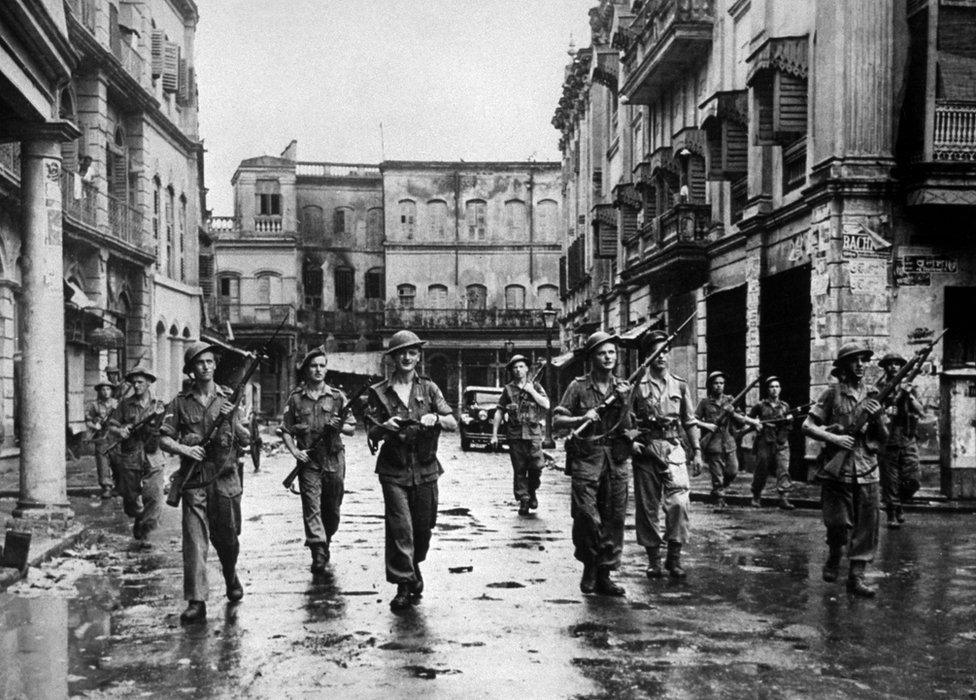
But beyond the parades and poetry, the question remains painfully relevant: Are we truly free? Yes, the British left our shores decades ago. But has their departure translated into freedom from hunger, ignorance, injustice, and fear? Or have we replaced one set of chains with another — subtler, but no less binding?
Freedom: Then and Now
In 1947, freedom meant breaking free from the grip of colonial rule — reclaiming our land, our voice, and our right to self-govern. Yet, leaders like Mahatma Gandhi, Jawaharlal Nehru, and Sardar Patel envisioned much more than political sovereignty. They saw a nation where citizens were free from the tyranny of poverty, caste oppression, illiteracy, and exploitation.
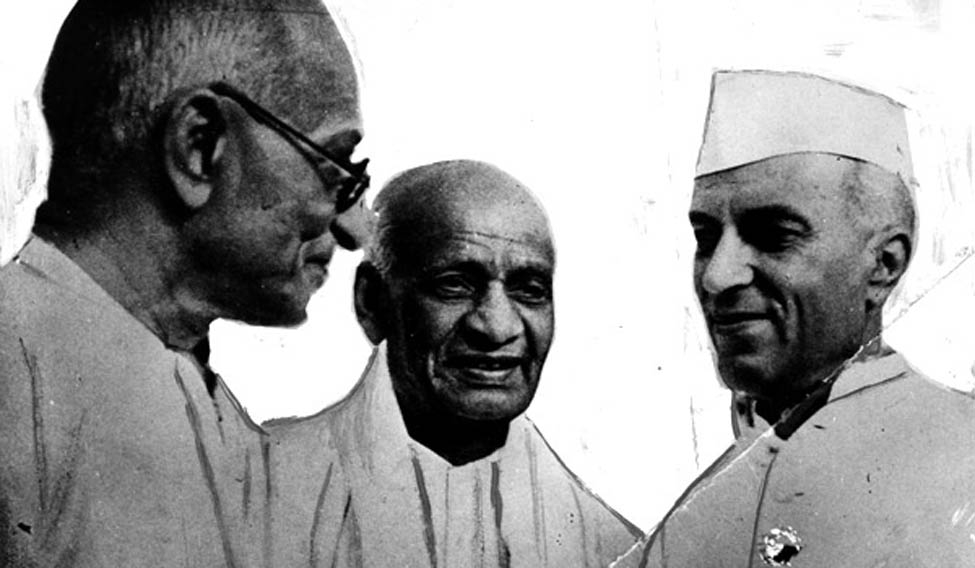
Gandhi stressed Swaraj — not just meaning self-rule, but self-reliance and moral responsibility. Nehru dreamed of India awakening “to life and freedom” in every village, every field, and every mind. Patel envisioned unity in diversity, without the divisions of class and creed.
And so, freedom came wrapped in promises: that every Indian child would go to school, every worker would have dignity, every woman would walk without fear, and every community would live in harmony.
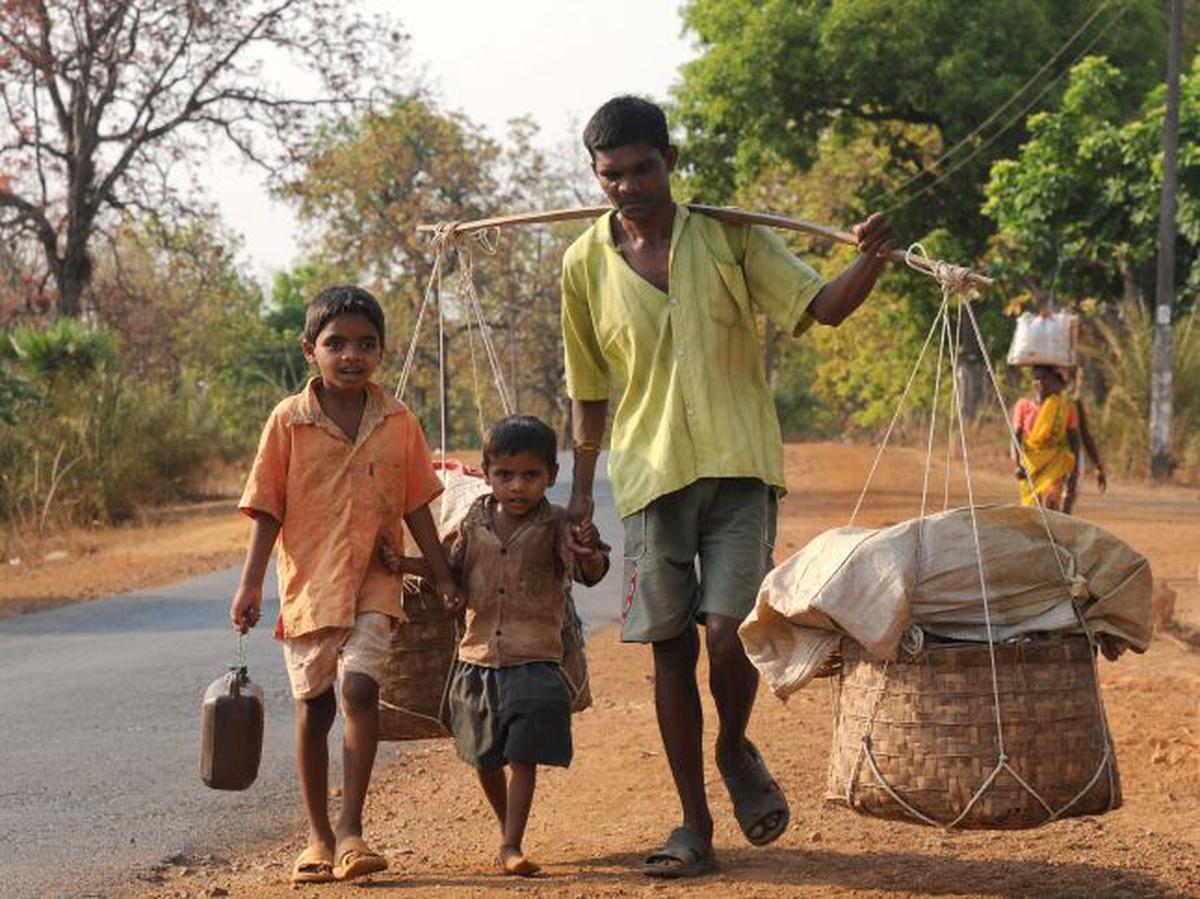
In 2025, however, the meaning of freedom has evolved. For the urban and upwardly mobile, it now includes technological progress, economic opportunity, and a place on the global stage. We celebrate missions to the moon, digital infrastructure, AI innovation, and world-class universities. For rural India and the marginalized, freedom remains more fundamental: access to clean drinking water, an affordable hospital, a functional school, and a secure livelihood.
The reality is that freedom is not enjoyed equally. It is an uneven map, with glittering progress in some regions and stubborn deprivation in others.
The Unfinished Promise
Seventy-nine years of independence have seen undeniable achievements — a functioning democracy, an expanding economy, a vibrant cultural identity, and global recognition. But the core promise of freedom remains incomplete.
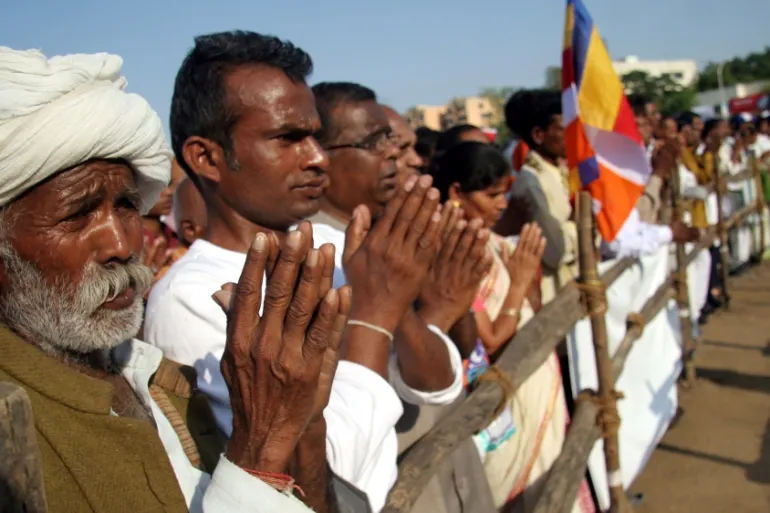
Social inequality continues to fracture our society. Caste-based prejudice persists in sly forms: the Dalit student denied a fair chance, the manual scavenger working with bare hands, the inter-caste couple threatened into silence. Gender discrimination holds back half the population: despite laws and campaigns, women face workplace harassment, domestic violence, and underrepresentation in leadership. Religious and communal divisions resurface with alarming regularity, often stoked by political opportunism.
Economic disparity is glaring. India’s billionaires multiply, industrial hubs boom, but pockets of the country still reel from starvation, farmer suicides, and joblessness. The pandemic years only deepened these gaps, reminding us how fragile the promise of equality remains.
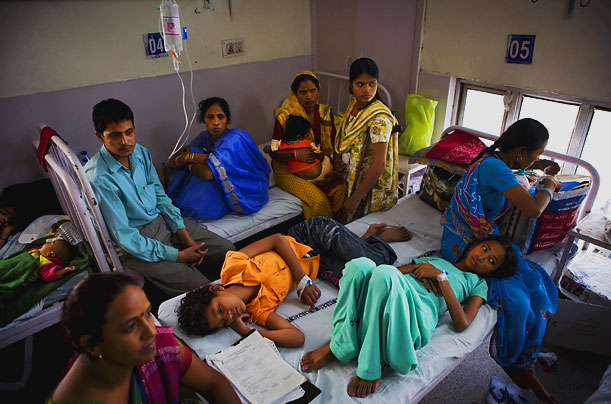
Education and healthcare — the backbone of any free society — still elude millions. Government schools in rural areas battle poor infrastructure, absentee teachers, and outdated curricula. Rural health centers suffer chronic shortages of doctors, equipment, and medicines.
Even personal safety, one of the most basic assurances of a free society, is far from guaranteed. Women plan their routes home based on streetlights, minority communities fear sudden violence, and activists sometimes pay for dissent with their lives.
Can we say we are truly free when opportunity is determined by birthplace, last name, or bank balance?
Why Mishaps Persist
The roots of our present failings are a tangle of history, governance, and social mindset. Colonialism drained India’s wealth and left behind a fractured social fabric. Partition, while marking independence, also inflicted deep wounds that still influence communal distrust.
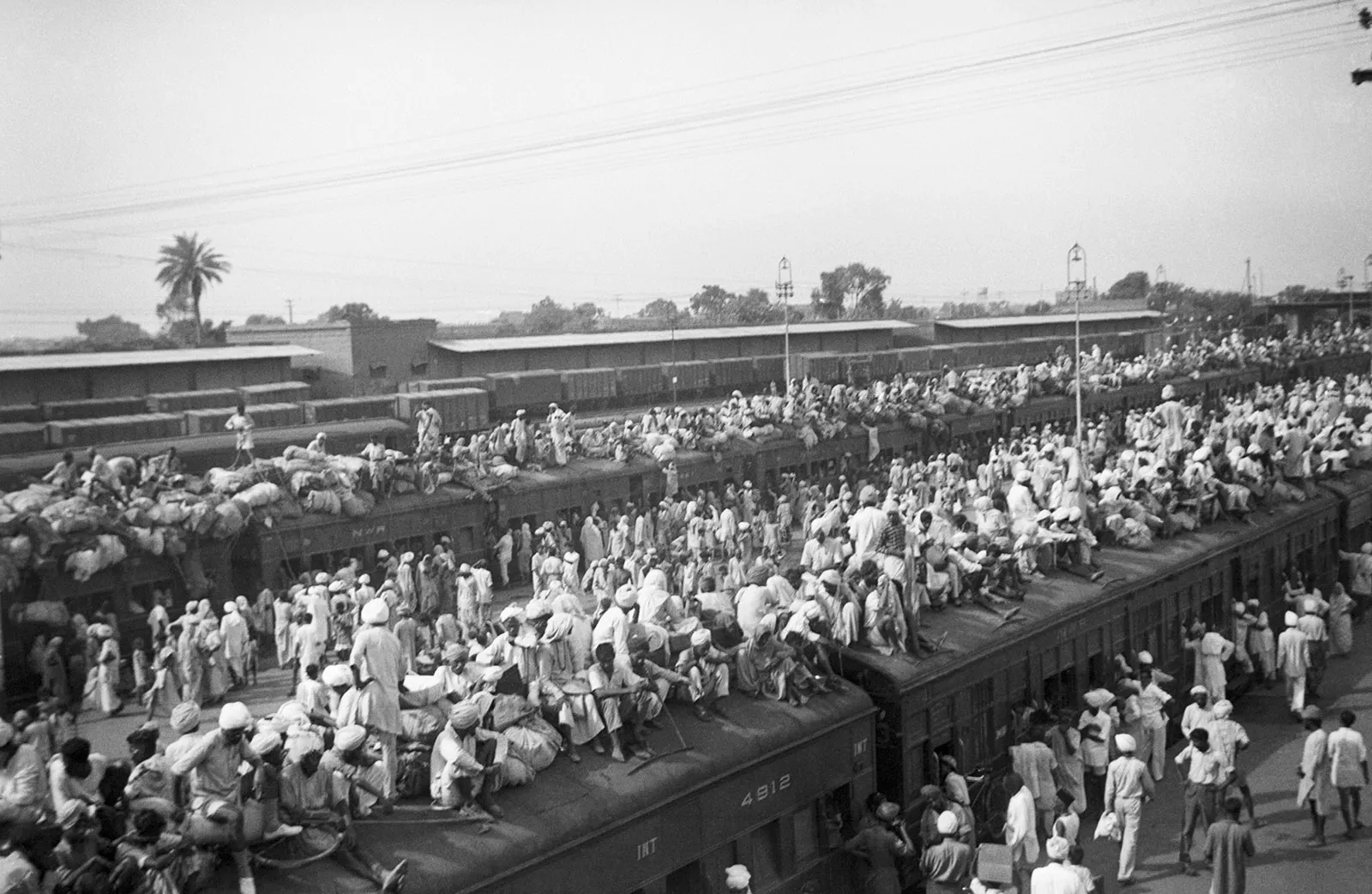
Political governance, though democratic, struggles under the weight of bureaucracy, corruption, and a system where short-term electoral wins sometimes overshadow long-term nation building. Policies are drafted with noble intentions, yet their implementation falters — trapped in red tape or distorted by vested interests.
Population pressure adds to the challenge. With over 1.4 billion people, providing equitable resources is a monumental task. Urban migration leaves cities overcrowded, while rural areas lag behind in development. Environmental challenges — flooding, droughts, pollution — further strain already limited infrastructure.
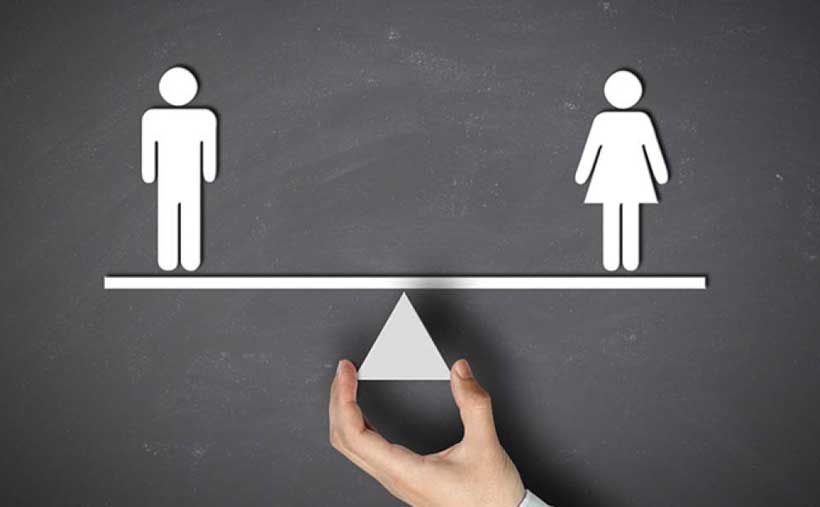
But perhaps the most stubborn factor is social mindset. Laws can change overnight, but attitudes take generations to evolve. Discrimination, patriarchal norms, and ingrained biases still shape daily interactions in homes, workplaces, and streets. We have, in some cases, modernized our technology but not our thinking.
The Real Meaning of Freedom
True freedom is not an event but a continuum — an everyday practice that demands vigilance. It is political liberty, yes, but also social justice, economic security, personal dignity, and intellectual openness.
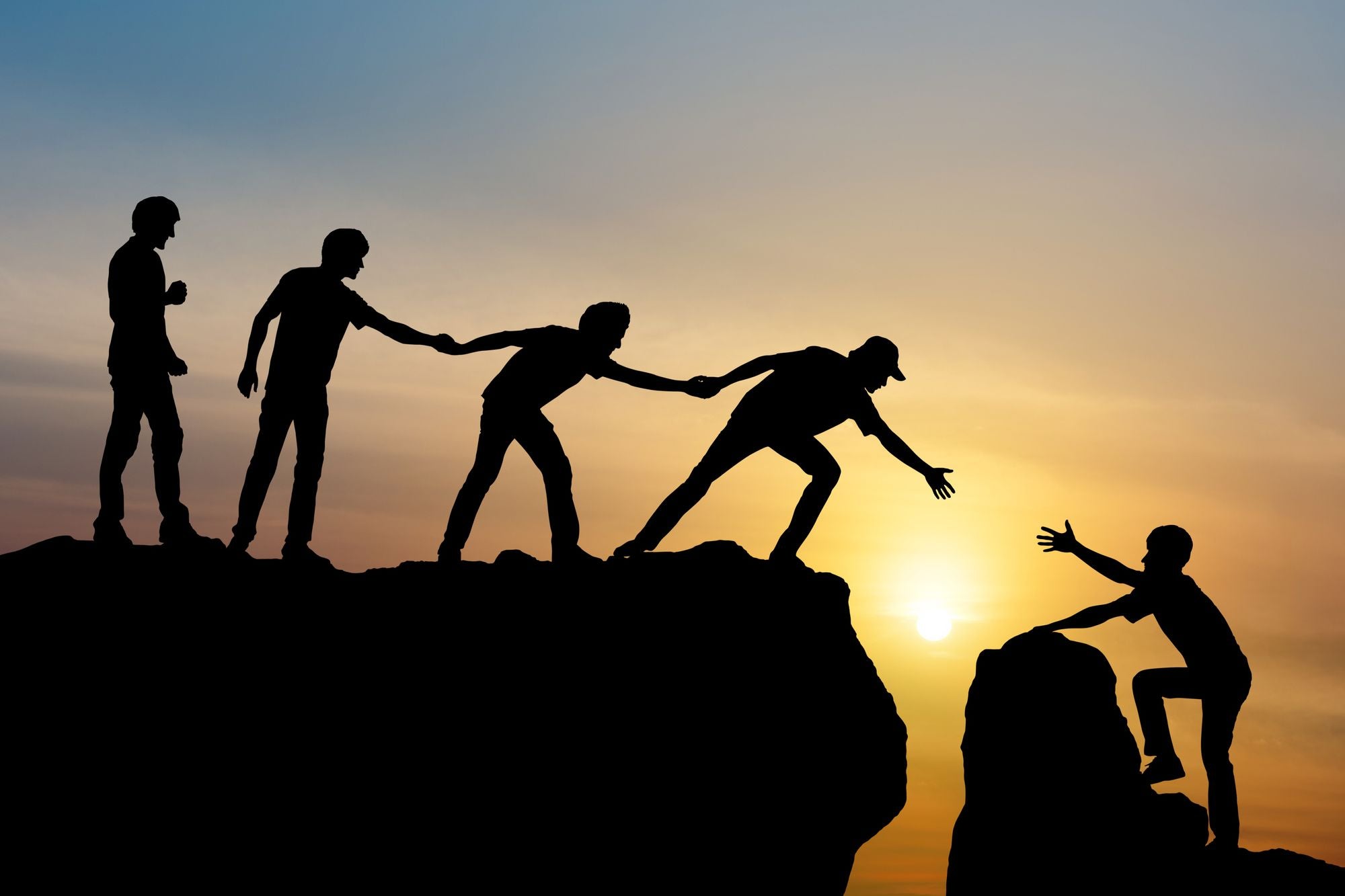
Political liberty means the right to vote, to voice dissent, to hold our leaders accountable without fear. Social justice is the equal treatment of all regardless of caste, religion, or gender. Economic freedom is the ability for every citizen to earn a livelihood with dignity, without exploitation or desperation. Personal freedom is walking without fear, making one’s own choices, and living life without humiliation. Intellectual freedom is the courage to question, to innovate, to disagree, and to grow.
Our Constitution enshrines these principles in the form of Fundamental Rights, yet their true test lies in their lived reality. A society where some are free and others are chained is not a free society — it is an illusion of freedom.
Our Duty Beyond Celebration
Every Independence Day should be more than a nostalgic look at the past; it should be a serious audit of the present. The rituals of flag hoisting, patriotic songs, and speeches are important symbols, but they cannot become substitutes for action.
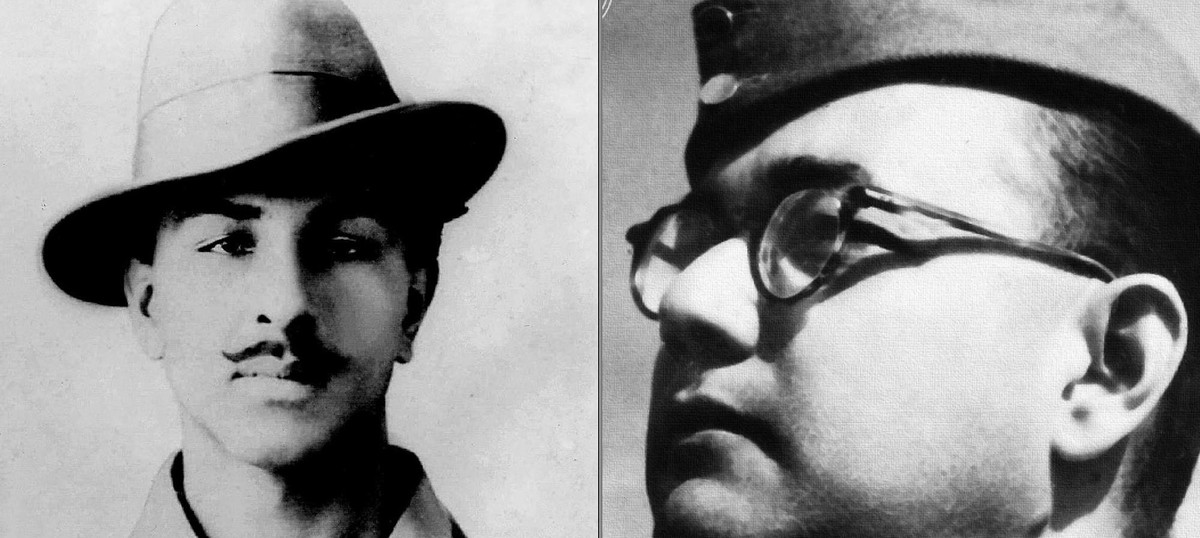
We owe it to the memory of our freedom fighters — from Bhagat Singh and Subhas Chandra Bose to Sarojini Naidu and countless unknown martyrs — to ensure that their struggle was not in vain. They fought for all Indians, not for a privileged few.
Our duties today are clear. We must combat inequality wherever we see it — in policy, in institutions, in conversations at home. We must embrace responsibility as the twin of liberty, for freedom without responsibility is chaos. We must invest in education, not just as a skill-building exercise, but as a means to awaken critical thinking and civic awareness. Healthcare must be a right, not a privilege dictated by wealth.
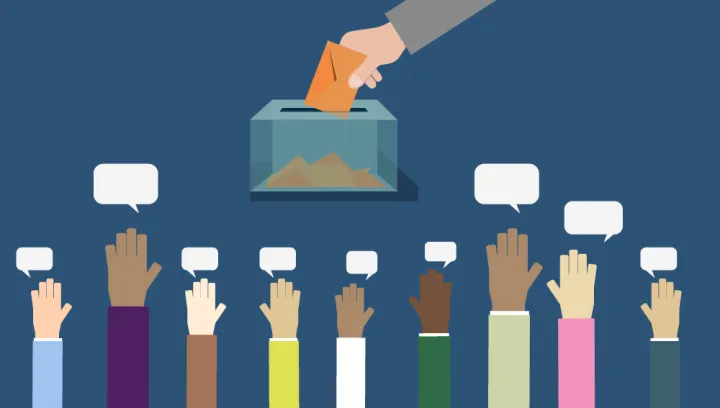
Most importantly, we must not become passive citizens. Democracy is not a spectator sport. It demands participation — in voting, in community service, in holding leaders accountable, and in protecting the rights of others, even when those rights do not directly benefit us.
Final Thoughts
India’s 79th Independence Day is a milestone worth celebrating, but also a mirror we must courageously look into. The progress we have achieved is real — but incomplete. The challenges we face are daunting — but not insurmountable.
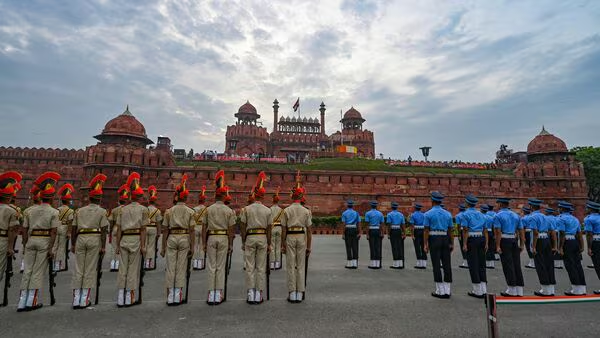
True independence will be ours when every Indian, irrespective of birthplace, class, gender, or faith, can live without fear or deprivation. When an Adivasi child in a remote village has the same quality of education as a child in Mumbai; when a woman can walk alone at midnight without glancing over her shoulder; when dignity and justice are equally available to all — then, and only then, will we fulfill the dream with which this nation awoke in 1947.
Until that day, Independence Day must remain not just a celebration of the past, but a pledge for the future. And as we look up at the fluttering tricolor this year, may it not just stir our pride, but ignite our resolve.
"Freedom is not merely the absence of chains. It is the presence of justice, equality, and opportunity — not for some, but for all."
With inputs from agencies
Image Source: Multiple agencies
© Copyright 2025. All Rights Reserved. Powered by Vygr Media.

